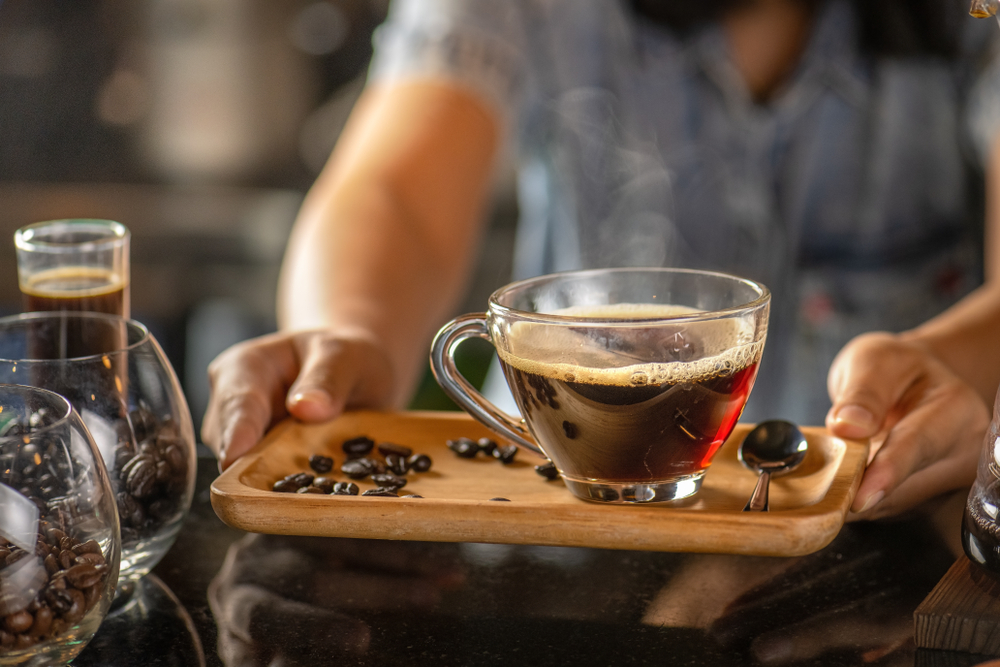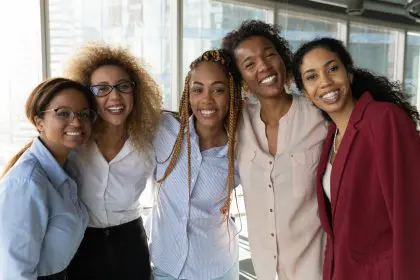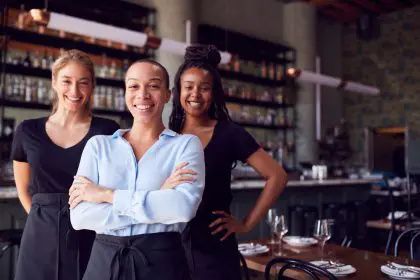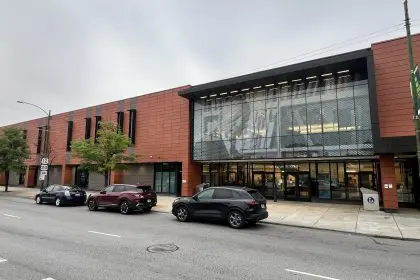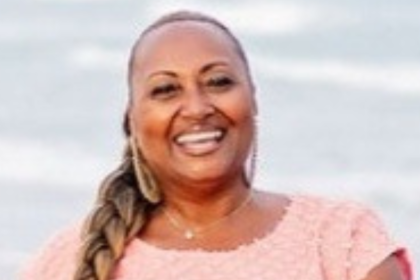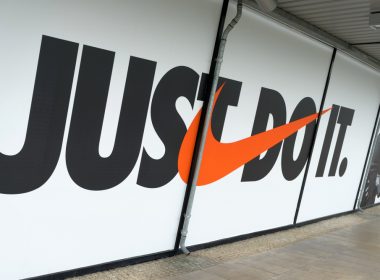Across American cities, Black-owned coffee shops are brewing far more than exceptional espresso and cappuccinos. These vibrant establishments have transformed into essential cultural centers where African American communities gather to connect, create and celebrate their shared heritage.
From Detroit to Los Angeles, these cafés are redefining the coffee shop experience by seamlessly blending coffee traditions with art, music and community engagement. They serve as dynamic gathering spots that host everything from poetry slams to entrepreneurship workshops while creating spaces where patrons feel genuinely seen and valued.
Coffee with a cultural conscience
The coffee shop has long represented a space for social connection, but Black-owned cafés infuse distinctly African American cultural elements into every aspect of their operations. This growing segment of businesses reflects a broader trend in Black entrepreneurship, with African American-owned companies increasing at an impressive rate of 14% annually.
For many Black café owners, the decision to open a coffee shop transcends mere business opportunity. It represents a deliberate reclamation of space within an industry historically dominated by large chains and predominantly white ownership. These entrepreneurs create environments where African American customers experience authentic cultural representation and belonging.
These establishments distinguish themselves through intentional choices, prioritizing local sourcing, incorporating cultural aesthetics in their décor, and maintaining deep community involvement. By featuring coffee blends with African origins, showcasing works by Black artists on their walls, and hosting culturally relevant events, they foster an atmosphere of belonging that resonates profoundly with African American patrons.
The impact extends beyond providing excellent coffee. Whether situated in bustling urban centers or serving as neighborhood fixtures in residential areas, these coffee shops have become integral to the cultural fabric of their communities, serving as informal community centers and safe spaces for connection.
4 innovative coffee shops reshaping communities
Several standout Black-owned coffee establishments demonstrate the powerful impact these businesses can have on their communities:
The Narrow Way Café & Shop in Detroit has established itself as a beloved community institution under the ownership of Lakesha and James Johnson. Located along the historic Livernois Avenue corridor, this welcoming café serves locally roasted beans and creative signature drinks including their popular “Motown Mocha” infused with rich caramel and chocolate notes. The space functions as much more than a coffee shop, regularly hosting open mic nights and book clubs celebrating African American literature. Its interior showcases vibrant murals by Black artists, while retail shelves feature products from Black-owned businesses, reinforcing its commitment to economic circulation within the community.
The Black Coffee in Houston distinguishes itself through bold flavor profiles and consistent community engagement. Owner Marcus Harris has developed a menu featuring blends inspired by African coffee regions, particularly highlighting Ethiopian Yirgacheffe beans. Specialty drinks like the “Melanin Latte,” enhanced with brown sugar and cinnamon, celebrate cultural heritage through flavor. The café regularly hosts jazz performances and art exhibitions showcasing Houston’s African American creative community. Its active social media presence serves as a digital extension of its physical space, promoting events like their popular sip-and-paint gatherings that consistently draw diverse crowds.
Urban Grind stands as a cultural powerhouse in Atlanta’s West End neighborhood. Founded by Dr. Zak Wallace, this combination coffee shop and bookstore provides a haven for African American intellectuals, artists and community members. The thoughtfully crafted menu includes items like the “Harlem Renaissance Cappuccino,” while a dedicated performance area regularly features spoken word poetry and literary readings. The shop’s monthly book club, focusing on works by renowned African American authors, cultivates meaningful dialogue and connection among participants. This deliberate fusion of coffee culture with literary appreciation evokes the spirit of historical Black intellectual spaces.
Sip & Sonder in Los Angeles exemplifies how coffee shops can blend business with community activism. Co-owners Amanda-Jane Thomas and Shanita Nicholas established their Inglewood café with a mission extending beyond coffee service. Their signature “Sonder Blend,” combining Guatemalan and Kenyan beans, reflects their commitment to showcasing diverse coffee origins. Beyond beverages, Sip & Sonder hosts workshops on entrepreneurship and wellness, frequently led by African American professionals from various fields. The café’s interior showcases rotating exhibitions by local Black artists, while their hiring practices prioritize employment opportunities for community members, making it a model for economic empowerment through small business.
Cultural preservation and community empowerment
For African American communities, these coffee shops function as cultural lifelines that nourish both personal and collective identity. They create environments where cultural references, from Afrobeat and soul music playlists to artwork depicting Black icons, are centered rather than marginalized.
The regular events hosted in these spaces strengthen community bonds. Urban Grind’s poetry nights echo the creative energy of the Harlem Renaissance, providing platforms for young Black poets to develop their voices. The Narrow Way Café’s book discussions stimulate conversations about African American identity and experience, fostering connections among regular patrons that often extend beyond the café walls.
These establishments play a vital role in preserving and celebrating Black heritage. The Black Coffee’s menu educates customers about Africa’s rich coffee traditions, while Sip & Sonder’s professional development workshops highlight African American contributions to entrepreneurship and wellness practices. By deliberately centering Black culture and achievement, these cafés counter mainstream narratives and create spaces where African American customers experience cultural affirmation.
The economic impact resonates throughout their communities. Black-owned coffee shops generate meaningful employment opportunities, often prioritizing hiring from within their immediate neighborhoods. They support other Black entrepreneurs by featuring their products, from handcrafted candles to freshly baked goods. The Narrow Way Café stocks artisanal soaps created by a local Black artisan, while Urban Grind carries publications from independent African American publishers. These intentional business practices help circulate dollars within Black communities, building economic resilience and opportunity.
Building community beyond beverages
The distinctive characteristic of these coffee shops is their function as community anchors and gathering spaces. They regularly host events designed to engage African American audiences, ranging from live music performances to financial literacy workshops addressing specific community needs.
Sip & Sonder’s entrepreneurship panels feature successful Black business owners sharing practical knowledge with aspiring entrepreneurs. The Black Coffee’s jazz evenings showcase local African American musicians, creating performance opportunities while preserving cultural traditions. Social media extends these connections, Urban Grind uses Instagram to promote upcoming events, while The Narrow Way Café engages with customers through X, soliciting feedback on new menu items and community initiatives.
While these spaces are welcoming to all patrons, they are intentionally designed with African American culture as their foundation. Regular customers of The Black Coffee often describe the atmosphere as reminiscent of family gatherings, where baristas remember personal preferences and the overall environment evokes the warmth and comfort of traditional community spaces. This sense of belonging proves especially valuable for younger African Americans seeking connection in urban environments where community ties may be otherwise difficult to establish.
Navigating challenges while building legacy
Despite their cultural significance, Black-owned coffee shops face substantial business challenges. Rising costs for supplies, real estate and operations create constant pressure, while competition from established chains with significant marketing resources presents additional hurdles. Black entrepreneurs also encounter systemic barriers to accessing capital, with reports indicating that Black business owners receive less than 2% of venture funding.
Nevertheless, these cafés demonstrate remarkable resilience through strong community support and innovative approaches to business development. Many have leveraged crowdfunding campaigns or organized pop-up events to generate capital for expansion. Their deep community connections create loyal customer bases that sustain them through economic fluctuations.
The future outlook appears promising for this segment. Several established Black-owned coffee shops are pursuing expansion, with Sip & Sonder developing plans for a second location and The Black Coffee exploring the establishment of a roasting facility to supply other Black-owned businesses. Emerging trends like mobile coffee carts and subscription bean delivery services are creating additional avenues for growth, allowing owners to reach broader audiences beyond their physical locations.
Black-owned coffee shops represent far more than businesses, they embody a cultural movement creating spaces where African American communities connect, create and flourish. From The Narrow Way Café’s vibrant open mic nights to Urban Grind’s literary atmosphere, these establishments celebrate Black culture while fostering economic opportunity and social empowerment.
Their impact extends well beyond serving excellent coffee. They function as vital community institutions, strengthening cultural identity and building legacies that resonate deeply with African American patrons while welcoming all who appreciate their unique blend of culinary skill, cultural celebration and community commitment.

